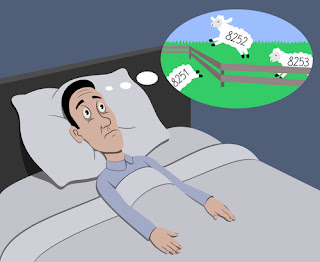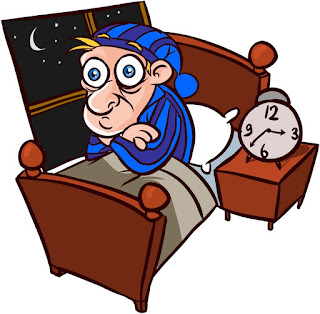Insomnia symptoms – Do They Affect Your Sleep?
SLEEP DURATION
 |
| image credit : jasadh.com |
How much sleep do we need every
day? It's difficult to determine the sufficient duration of normal sleep
is because every individual depends on the age, activity, gender
and other things also influence the amount of sleep you need
including lifestyle, diet and environment.
Most healthy adults sleep for
about seven to nine hours a night. As people
get older, it becomes more difficult to maintain that amount. Even there
are some conditions that prevent us to get us sufficient amount of sleep, some
condition includes insomnia.
INSOMNIA
Insomnia is a condition where the sufferer feels difficult in falling or
staying asleep. It’s Often considered chronic
if it happens at least more than three times a week
for a period of
time.
Someone with insomnia will often
take 30 - 60 minutes or more to fall
asleep and may get only 4 or fewer hours of sleep, this can bring negative
affect to your mood, cause exhausted and fatigue during the day, and also lead to problems with personal relationships and in
the workplace.
 |
| image credit : /www.rspaw.or.id |
Insomnia could also cause difficulty
paying attention, focusing on tasks or remembering feeling tired and not
refreshed by sleep, not being able to function properly during the day and
finding it difficult to concentrate and even irritability, depression or
anxiety.
The insomnia symptoms can also
cause the sufferer errors or accidents, tension headaches, distress and ongoing
worries because of unable to sleep.
Most of us have experienced brief periods of insomnia, this can
happen when experienced jet lags or when anxious or overwhelmed by several
reason.
THE INSOMNIA SYMPTOMPS
Consciously or unconsciously, up to a third of people are thought to
experience insomnia at some point each year because sometimes insomnia symptoms are not recognized by sufferers,
mild insomnia symptoms may include:
·
Lying awake for long periods at night before
falling asleep
·
Difficulty falling asleep at night
·
Awakening during the night
·
Awakening too early
·
Not feeling well rested after a night's sleep
·
Daytime tiredness or sleepiness
·
Difficulty paying attention, focusing on tasks
or remembering
·
waking up several times during the night
·
waking up early in the morning and not being
able to get back to sleep
MEDICAL TREATMENT
So how do you distinguish a
normal, passing sleep problem from a more serious form of insomnia that
requires treatment?
You should consider speaking
to your General Practitioners if a lack of sleep is affecting your
daily life and you feel that it's causing a problem.
If insomnia makes it hard for you
to function during the day, see your doctor to determine what might be the
cause of your sleep problem and how it can be treated. If your doctor thinks
you could have a sleep disorder, you might be referred to a sleep center for
special testing.
____________________________________________________________
Source:
